By
Cynthia M. Lardner
It’s a deeply foreboding feeling knowing that world global stability and security are rapidly devolving. Even before the uncanny election of Donald Trump and his unpredictability as the presumed President-Elect, world leaders were already concerned about increased isolationism, a tipping of the economic scale from the West to the East, innumerable proxy wars, nuclear proliferation, and even the outbreak of another war, ostensibly a Third World War.
Russian Federation President Vladimir Putin’s tsarist extremist and expansionist policy, fueled by his highly effective propaganda machine, the ability to use espionage, cyberwarfare, military force and diplomacy has undermined global security. Russia has and is playing an instrumental role in influencing elections both in the United States and the European Union, while deflecting attention away from other significant crises and proxy wars, beyond Ukraine and Syria to the Baltic, Balkans and Eastern European Union regions, as well as in the Middle East and North African (MENA) region and the South China Sea.
Concurrently, China has effectively used its financial prowess to expand well beyond Asia, into the MENA region and the EU, resulting in reliance upon and possibly allegiance to China. Simultaneously, China has been fortifying its military.
The rationale is that the more unstable the world, the easier it is for Russia and China to achieve their interdependent objectives.
“Europe and Asia are competing with one another,” opined Ambassador Lamberto Zannier, Secretary General of the Organization for Security and Cooperation in Europe (OSCE).
This has created a potentially volatile and highly insecure world when the reality is, as stated by Mr. Zannier, that “Security is inexplicable linked to peace.”
Uncertainty and Unrest in Europe
In Europe, democratic leadership is being threatened by Russia. Russia has been instrumental in keeping refugees flowing into Europe. Russia then uses its propaganda machine to feed fears of Islam and fuel the momentum in many countries to follow Great Britain’s lead in exiting the EU. Russia is backing pro-Putin political candidates seeking to gain power in Germany, France, and Poland. Pro-Putin leaders are already in power in the Czech Republic, Hungary, Turkey and Serbia.
Moldova is Russia’s latest conquest. On November 14th it was announced that Moldova’s first national presidential election had been won by pro-Russian supporter Igor Dodon. His opponent, Maia Sandu ran as a pro-EU candidate. Moldova, a former Soviet republic, following 1992 Russian military action experienced a breakaway region – Trans-Dniester – which is now considered a demilitarized zone governed by Moldova, Russia and Transnistria. This, according to Mr. Zannier is a frozen conflict, i.e. a situation in which active armed conflict has ceased without a peace treaty or formal resolution. Trans-Dniester conveniently abuts Ukraine, which has suffered Russian aggressions beyond the illegal annexation of Crimea.
On November 13th France’s far-right leader Marine Le Pen, who is expected to run against French President François Hollande in May 2017, made the aberrant comment that ‘there was no reason for Europe to be scared of Russian President Vladimir Putin’, when experts, such as Anne Applebaum, have repeatedly stated that Mr. Putin is working to destabilize Europe which is facilitated when there is a lack of unity. Ms. Le Pen called the U.S. election a victory against the elite. She supports Brexit, believing that all EU members should be allowed the choice to exit or reconfirm their EU commitment. France’s far-right is known to have ties to the Kremlin.
Marine Le Pen – EPA photo
Significantly in Germany, one, if not the strongest EU leader, Chancellor Angela Merkel’s re-election in 2017 has already been threatened by pro-Putin fringe group the Alternative for Deutschland (AfD). Presently, the AfD had gained representation in ten of the 16 German state parliaments winning several elections this fall against Ms. Merkel’s Christian Democratic Union party. Germany is especially important to Mr. Putin both historically and based on its location. Germany is a neighbor to countries between its borders and Russia that are largely sympathetic to Mr. Putin.
In Turkey, a key regional nation and a NATO member, President Recep Tayyip Erdogan is disenfranchised once again by the EU, and by exclusion from ongoing American supported military action to retake Mosul, Iraq from ISIS and the similar plans to liberate Raqqa, Syria. Given the atrocities, including human rights violations and suppression of a free press, following the failed coup against Mr. Erdogan, Turkey will be unable for many years, if at all, to show adherence to Rule of Law; a precursor to acceding to the EU. Mr. Erdogan has warmed up to the Kremlin.
On November 2nd Mr. Zannier acknowledged that there is a, “Disease between Russia and Europe.”
Mr. Zannier confirmed that conflict is appearing in the middle of Europe where the politics are extremely divided, cautioning that the “Divisions among key players are creating an accumulation of challenges.”
The OSCE is the world’s largest intelligence agency comprised of 57 participating states in North America, Europe and Asia, including Russia. Given Russia’s membership, it is questionable as to how much intelligence is shared by intelligence agencies in other countries, especially the United States, which has the world’s most comprehensive and elite intelligence network.
The OSCE is responsible for monitoring the border between Russia and Ukraine, with both U.S. and Russian monitors providing daily reports. The OSCE has been unable to quell the ongoing Russian aggressions.
“In a way this is worse than the Cold War. At the end of the Cold War there was arms control”, stated Mr. Zannier, adding that, “Dialogue is difficult in this situation.”
Steven Pifer, Senior Fellow at the Brookings Institution, Director of its Arms Control Initiative, and former U.S. Ambassador to Ukraine, concurred, stating that, “I would have to say that, without question, this is the low point in U.S.-Russian relations since the end of the Cold War.”
Merkel and Putin – Photo – Maxim Shemetov/Reuters
The Potential Impact of a Trump Administration
Even before the American presidential election, leaders and political analysts were already on edge, Brexit being a major cause for concern. Despite its NATO membership, the UK’s position on a range of issues has generated deep concern amongst the remaining EU members. Post-election has resulted in a plethora of leaders expressing grave concern that a Trump administration will accelerate issues related to denigration of justice, security and adherence Rule of Law – the core precepts of democracy – and pursue a foreign policy based on isolationism.
Patrick Stewart, Senior Fellow and Director, Program on International Institutions and Global Governance, had this to say:
“Among its many implications, Donald Trump’s election as president calls into question the open liberal international order this country has championed and defended for more than seven decades. The edges of that order were already fraying, thanks to disenchantment with the global economy and the return of geopolitical competition, particularly with Russia and China. Trump’s triumph will accelerate its disintegration, by undermining the network of rules, institutions, and alliances that twelve presidents, Republican and Democratic alike, have nurtured since 1945. The results of the election suggest that the main threats to the liberal world order are no longer foreign but domestic.”
This would certainly be the case if a Trump presidency and a Republican Congress opted out of NATO. Mr. Trump is correct in stating that the U.S. is only one of five member nations that is current on NATO dues as acknowledged by NATO Secretary General Jens Stoltenberg, “The United States currently accounts for almost 70% of NATO defence spending, and has rightly called for a more equitable sharing of the burden.”
Trump and Obama at The White House – Photo – Jim Watson/AFP
However, Mr. Stoltenberg correctly pointed out that, “On both sides of the Atlantic leaders have always understood that a stronger, safer and more prosperous Europe means a stronger, safer and more prosperous United States. This partnership between Europe and the United States, embodied in the NATO alliance, remains essential for both.”
International support for Trump has come from those politicians or countries who favor the dismantling of institutions, such as NATO and the EU, and China or who have significant ties to China, Russia or both. Globally many countries have entered into financial agreements with China or its Asian Infrastructure Investment Bank (AIIB).
Elsewhere in World
Elsewhere in the world, the U.S. has relied upon “soft power” to pave the diplomatic path. “Soft power” is a method by which a country amasses influence without coercion or direct payment. Soft power includes everything from providing disaster relief, developmental aid and the promotion of democratic values. The purpose of dedicated payments is to increase goodwill.
“Under Donald Trump … I would be very concerned about the importance of soft power. It does affect our national security, and it’s a challenge even under ideal circumstances,” stated Sen. Ben Cardin (D-MD), the ranking Democrat on the Senate Foreign Relations Committee.
In the Philippines, newly elected President Rodrigo Duterte has been like the shifting sands. Mr. Duterte was elected shortly after the Philippines won a protracted legal battle in the Permanent Court of Arbitration against China over rights to the oil-rich South China Sea. After his election, the U.S., along with other nations and human rights groups, criticized Mr. Duterte’s extra-judicial killings of alleged drug lords. His actions prompted the U.S. to halt sales of assault rifles to the Philippines. Now, Mr. Duterte is vacillating between an allegiance to the U.S., a long-standing ally, and China. If the Philippines ultimately sides with China, it would potentially make freedom of navigation in and through the South China Sea more difficult and potentially more dangerous for other countries.
John Kerry and Rodrigo Duterte – Photo – King Rodriguez/PPD
Afghanistan, after thirteen years of concerted effort by NATO and the U.S. to create a self-sufficient democratic government free of the Taliban, has been impacted by Russia’s support of the Taliban and is engaging in commercial activity with China, which will ultimately make it less dependent on Western aid packages.
Pakistan, another critical country, is also doing business with China. The corrupt Pakistani military is engaging in joint military operations with Russia.
China’s interest in the region is securing the path critical to its $46 billion “One Belt, One Road” trade route, known as the China-Pakistan Economic Corridor (CPEC). CPEC is intended to expand China’s Asian economic and political outreach to Afghanistan, Uzbekistan, Kazakhstan and Iran, among others, as well as providing it with access to a sea route for trade. In Pakistan, CPEC runs from Pakistan’s Gwadar port on the Arabian Sea to China’s landlocked Xinjiang Province. In Afghanistan, the Sino-Afghan Special Railway Transportation, part of CPEC, connects China to Afghanistan. For Afghanistan it is a route by which it may sell its copper.
The list simply goes on.
The Illusion of a United Nations Security Council
“When we deal with the larger issues, that’s when the United Nations becomes important,” stated Mr. Zannier.
The truth is the United Nations Security Council (UNSC) will not fulfill the obligations delegated to it by the United Nations Charter. China and Russia, along with the United States, the United Kingdom and France, are the permanent five (P5) UNSC members and have veto power, which Russia and China have misused over and over again.
For many years, there has been a push to amend the United Nations Charter as it relates to the UNSC. Unfortunately, save Kofi Annan, during his tenure as the seventh Secretary-General of the United Nations, whose strong criticisms of the United Nations earned him a Nobel Peace Prize while still in office, leaders currently in office fail to speak the truth that change is essential if there is to be world order. It’s those countries who are most affected that ought to be speaking out but, outside of the general complaints expressed during the annual September General Assembly meeting, they remain mute in demanding structural changes fearing any criticism might adversely impact their country’s security or pecuniary interests.
Secretary-General of NATO Jens Stoltenberg – Photo – Thierry Charlier/AFP
Rather, its former statespersons who have been vocal in the criticism of the United Nations and, in particular, the UNSC. They include former U.S. Secretary of State Madeleine Albright, former Canadian Minister of Foreign Affairs Lloyd Axworthy, former President of Ireland Mary Robinson, former U.S. President Jimmy Carter, and former Norwegian Prime Minister Gro Harlem Brundtland.
The current lack of faith and mistrust in international organizations is also being experienced by the International Criminal Court, from which Burundi, Gambia and South Africa’s have withdrawn. It is expected that other African nations will follow suit as their governments feel that African nations have been unjustly singled out by the ICC. While the ICC has begun the prosecutorial process in two cases involving Russian aggressions, enforcement of any finding of guilt is the responsibility of the state involved or at the discretion of the UNSC, effectually rendering any finding of guilt not worth the paper it’s printed on.
Unity
Mr. Stoltenberg concluded that, “In these uncertain times… above all we need to recognise the value of the partnership between Europe and America. It remains indispensable. So rather than deepening our differences, we need to nurture what unites us, and find the wisdom and foresight to work together for common solutions. Going it alone is not an option, either for Europe or for the United States.”
The author with United Nation Secretary-General Ban Ki-moon at the inauguration of the new ICC complex on April 19, 2016
Cynthia M. Lardner
Cynthia M. Lardner is an American journalist living in The Hague writing about geopolitics for Tuck Magazine and E – The Magazine for Today’s Executive Female Executive. Her blogs are read in over 37 countries. As a thought leader in the area of foreign policy, her philosophy is to collectively influence conscious global thinking. Ms. Lardner holds degrees in journalism, law, and counseling psychology.
Sources

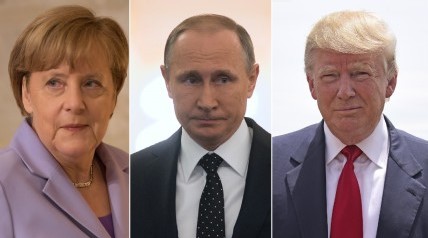
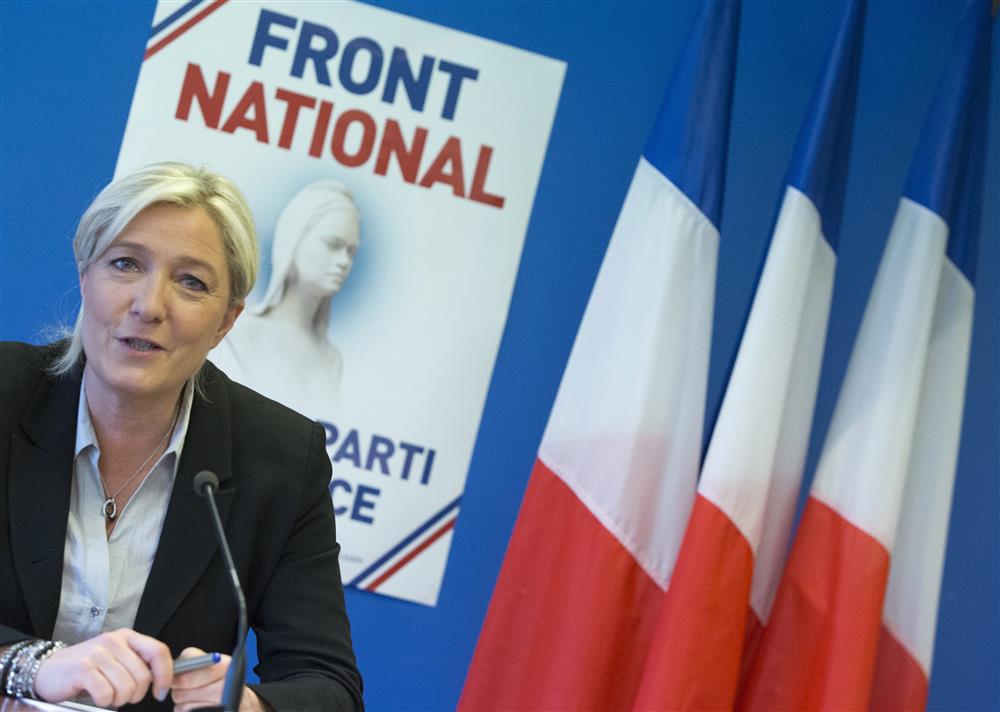
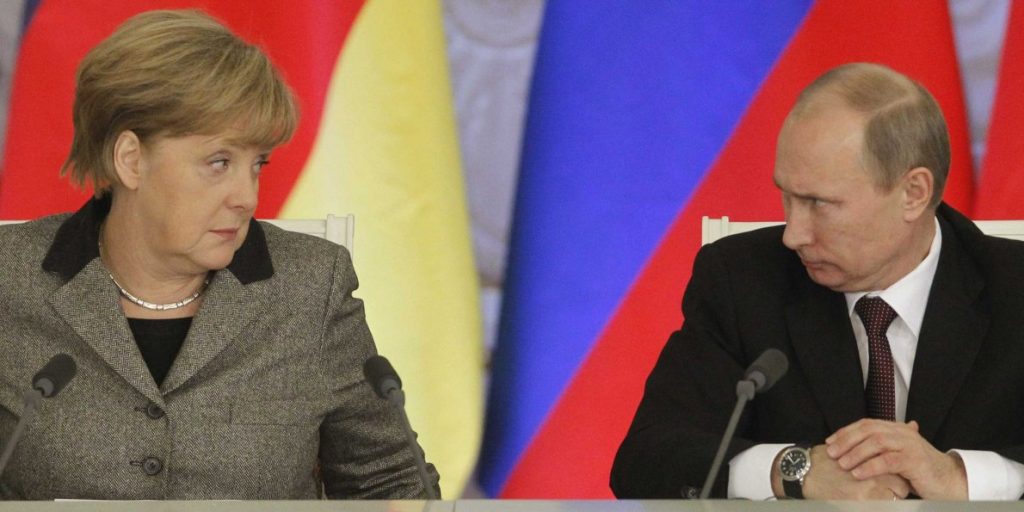
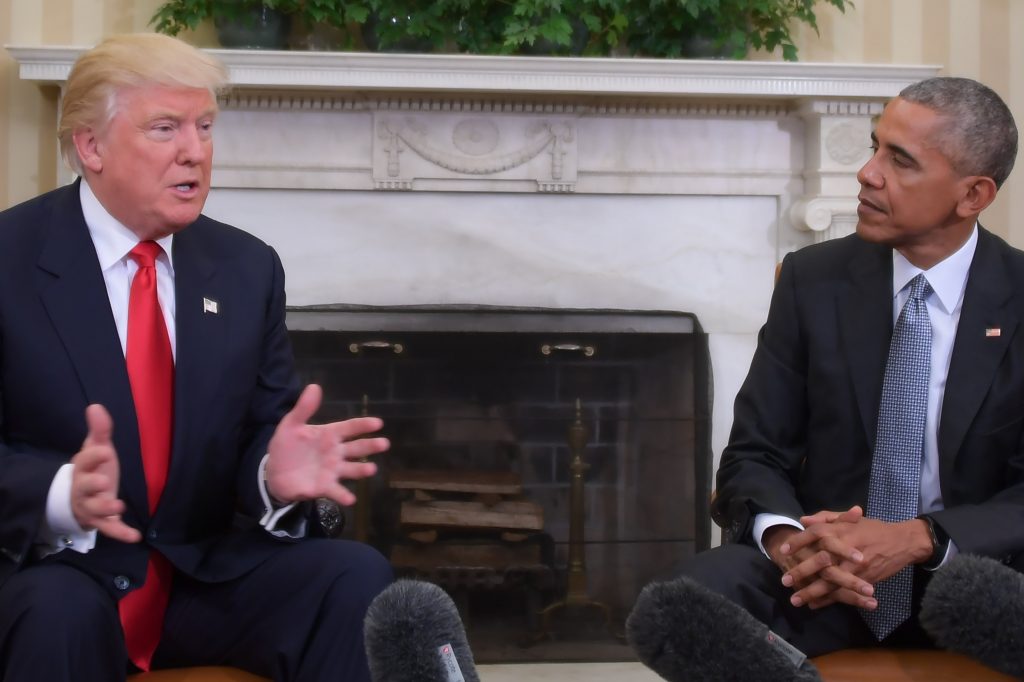
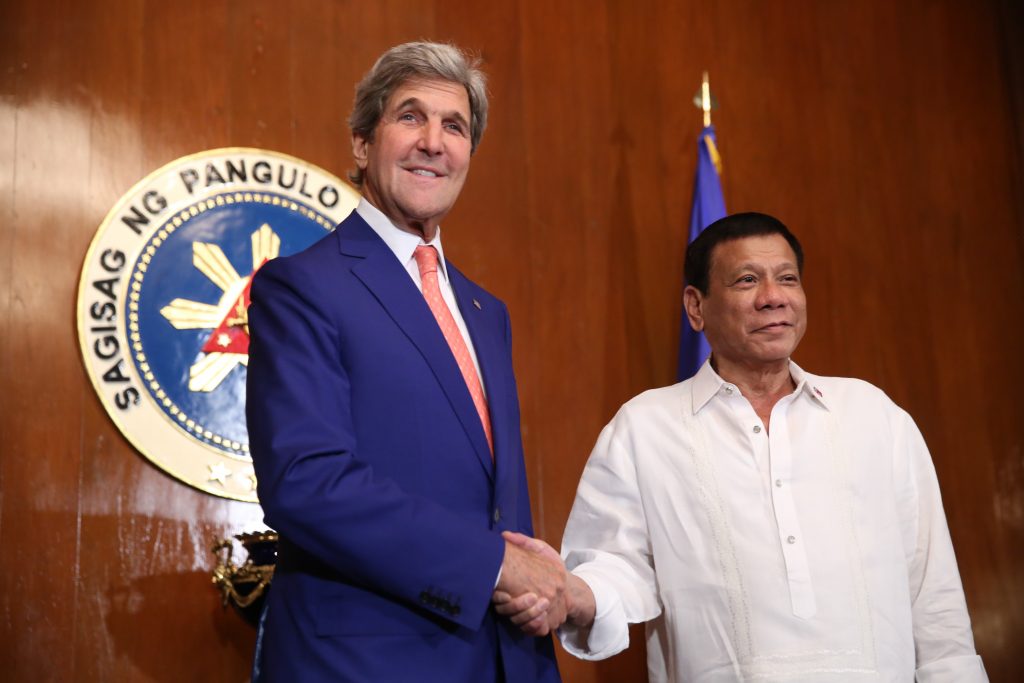
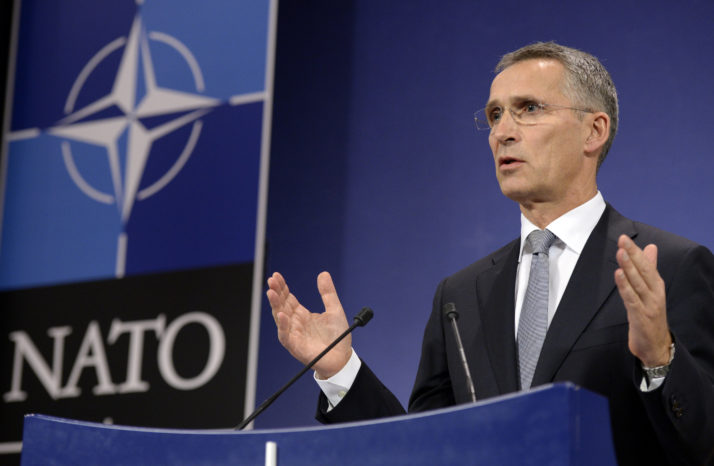
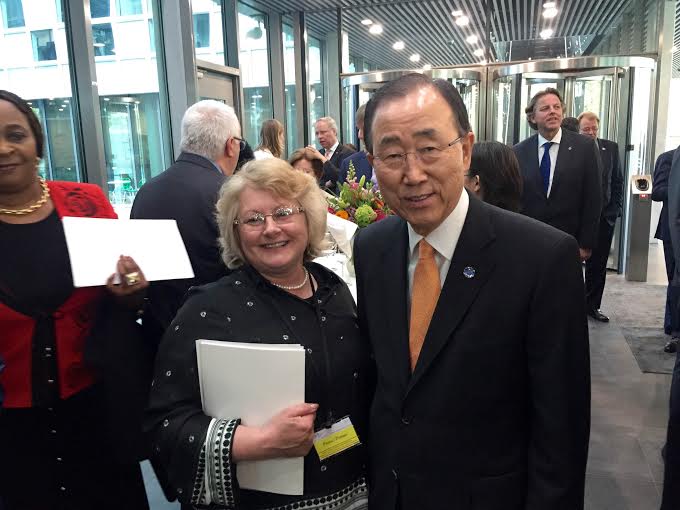
Political Causes And Issues Behind Assassination 's - Poem by Is It Poetry Policies for oppressing the poor and minorities, other's may lay in authoritarian policies. Using one's unexpected rise to power, who are able, to divide the population, usually through fear and hate. Hitler did. When a child appears in a school that your child attends, and speaks of that which their parents attests, that The newly elected official has allowed. Then there will the seed of their mean fear appear. Decent, thoughtful German's could not represent which was right, like now at the risk of being killed or their businesses being specifically targeted. Now that we have registered hundreds of thousands of sex offenders. Reason now dictates that through this open door to those and more, Muslims the press, minorities, the poor, disabled and he has, openly confessed to that and hey a rising star, as I grab what at what's beneath your dress. This can only happen in a country that lacks an efficient mechanism for leadership change. And the will and the means to enforce it. Where the welfare of the people are ignored and a vacuum can be filled by new leadership, That the populace Respect's and adores. Is It Poetry